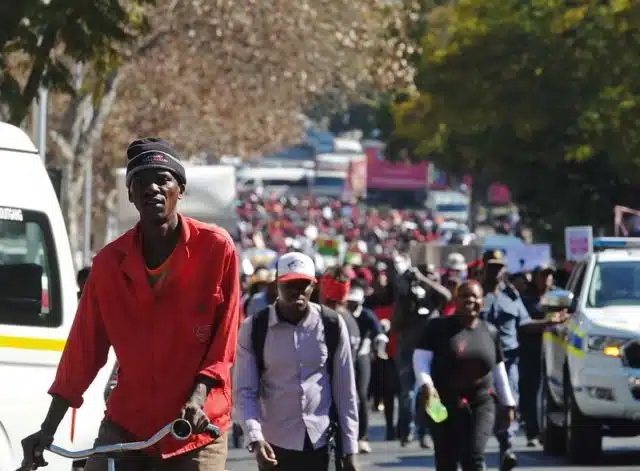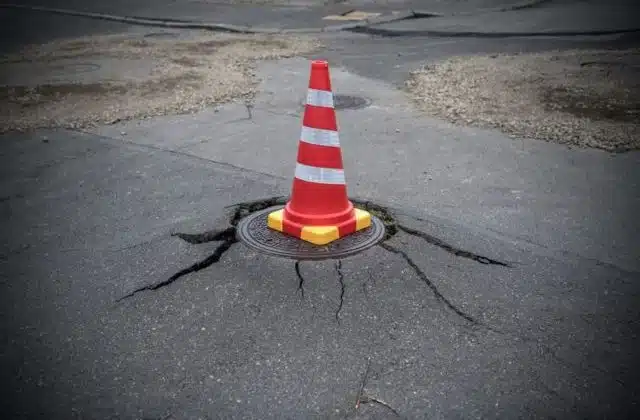
D-Day for government as massive public sector strike looms
The Public Service Association says that its members have rejected the latest wage offer from the government and are gearing up for a nationwide strike.
Speaking to NewzroomAfrika, PSA general manager Reuben Maleka said that all the necessary processes to organise a strike have been followed, and all that needs to be done is to give seven days’ notice to the employer, adding that Wednesday (28 September) was the last day for the matter to be resolved with the government.
He said that it has become common understanding that the only way to get the national government to listen to workers’ plights is to take to the streets. “I believe a strike is the only option,” he said.
The threat of strike action comes as union members reject the government’s wage offer of 3%, plus an extension of a monthly R1,000 cash gratuity through to March 2023.
The wage offer of 3% was rejected on the basis that salaries for public sector workers had not increased in three years. This lack of increase has had a negative impact on workers’ lives, the unions said, because costs are rising, but the salaries have stayed the same.
The unions said that the public sector has a reputation of being highly paid, but this was not reflective of the low-end workers who were demanding increases. The government’s wage offer only applies to levels 1 through 12 in the public sector salary scales – which excludes top-earners like senior managers.
Government workers received no increase in 2020 and a small 1.5% bump in 2021. The government initially offered 1.5% again in 2022, before unions negotiated it up to 3% in the latest round of talks.
Maleka said that it’s actually the cash gratuity that has become the main sticking point for workers, however.
While public sector unions have demanded an 8% wage increase, the PSA GM said that they went as low as 6.5% – arguing that this is a deep compromise, considering inflation is above 7%. However, it’s the targeted end to the cash gratuity that has upset workers the most.
The R1,000 gratuity has been in effect since April 2021, given in lieu of big wage hikes. Maleka said that for public service workers earning at low levels – in the level 3-6 salary bands – this R1,000 is equal to a 10% to 11% increase that makes a massive difference to their lives.
With the government’s wage offer, the gratuity will come to an end in March 2023, leaving these workers far worse off, with the 3% wage hike offered not making any positive difference.
“Workers are despondent, they feel neglected. We have a clear mandate from members that this is not acceptable,” he said.
Maleka said that Wednesday (28 September) is the last day for the matter to be resolved before unions go back to their members to organise a strike.
“We have a certificate of non-resolution, and members have balloted saying they are willing to give notice for a strike. The government only listens to people who take to the streets. The only option is to strike,” he said.
Workers represented by public sector unions include police officers, security workers, educators and other public servants in various government departments. Government is the country’s biggest employer, with the latest data from Stats SA showing that provincial departments employ 1.2 million people alone.
South Africa’s work days lost due to strike action rose more than 30-fold in the six months through June compared with the same period a year earlier, driving up wage settlements between labour unions and companies.
The economy lost 1.6 million work days due to industrial action in the first half of 2022, up from 45,000 in the prior year, data in South African Reserve Bank’s Quarterly Bulletin shows.
Dissatisfaction over pay was the biggest cause of industrial action in the second quarter, accounting for 99% of work days lost and 85% of strikes. This drove the average wage settlement rate agreed through collective bargaining up to 6.1% in the first half of 2022, from 4.5% a year earlier.
Despite the increase, the average wage settlement rate was still below the average headline consumer price inflation rate of 6.2% in the first half of 2022, the central bank said.



